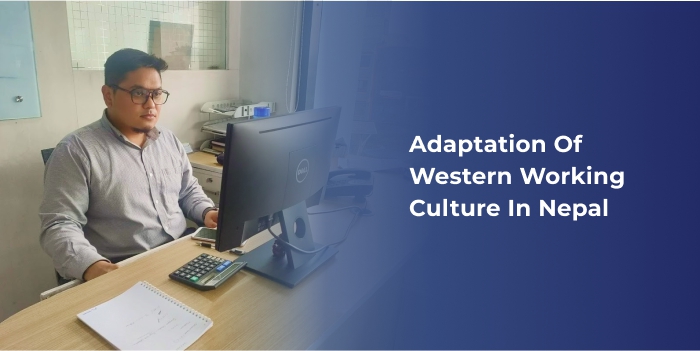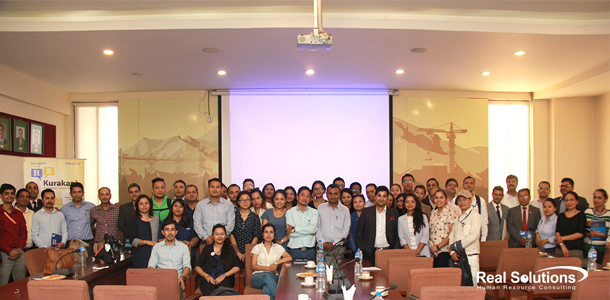Nepal is witnessing a remarkable shift in its working culture as Western practices take hold in the professional landscape. In recent years, there has been a growing acceptance of Western working practices in Nepal.
The country's increasing globalization and digitalization is paving the way for traditional work methods to be replaced by modern approaches. Also, the significant increase in multinational and business process outsourcing companies operating in the country has exposed Nepalese to new ways of working.
Of course, the adaptation of Western working culture in Nepal is not without its challenges. In this blog, we delve into the adaptation of Western working culture in Nepal, examining its impact on the local workforce and the challenges and opportunities that arise from this transformative process.
Understanding Western Working Culture
Western working culture is characterized by a number of factors, including:
A focus on teamwork and collaboration:
Western workplaces typically emphasize the importance of working together to achieve common goals. This is in contrast to some traditional Nepali workplaces, where employees may be more accustomed to working independently.
A greater emphasis on performance and results:
Western workplaces typically evaluate employees based on their performance and results. This focus on results can be a significant change for Nepali employees, who may be more accustomed to being evaluated based on their seniority or loyalty.
More flexible working arrangements:
Western workplaces are increasingly offering flexible working arrangements, such as telecommuting and flextime. These arrangements can be a good fit for Nepali employees, who may have family or other commitments that make it difficult to work traditional hours.
The Shift in Nepalese Working Culture
Nepal's working culture has undergone a significant shift in recent years. This is due in part to the increasing influence of Western culture, as well as the growing number of Nepalese who are educated abroad or employed by multinational companies.
Traditionally, Nepalese workplaces were characterized by a hierarchical structure, with clear lines of authority and responsibility. Decisions were made by senior management, and employees were expected to follow orders without question. However, this traditional model is gradually giving way to a more Westernized approach, which emphasizes teamwork, collaboration, and open communication.
The result of this shift is a more dynamic and flexible working environment. Employees are now encouraged to share their ideas and opinions, and they are given more autonomy to make decisions. This has led to a more productive and innovative workforce.
Benefits of Adaptation
The adaptation of Western working culture in Nepal brings numerous benefits such as:
Enhances efficiency
Encourages employee empowerment
Nurtures a sense of accountability
Competent workforce meeting global standards
Streamlined processes through technology integration
Promotes collaboration
Remote work and global partnerships opportunities
Competitive edge in the international market
Attracting investment
Driving economic growth
Challenges and Considerations
While the incorporation of Western working culture brings many advantages, it also poses challenges. Nepalese society, deeply rooted in its own values and traditions, may exhibit resistance to change. The generation gap between older and younger employees can lead to conflicts and difficulties in implementing new practices. Striking a balance between Western efficiency and local cultural values is crucial to ensure a smooth transition that respects the unique identity of Nepal's workforce.
Finding a Harmonious Balance
Achieving a harmonious balance lies in leveraging the best aspects of Western working culture while preserving the strengths of Nepalese traditions. Encouraging open dialogue, providing comprehensive training and mentorship programs, and fostering cross-generational collaboration can bridge the gap and create a positive work environment. Integrating Western practices, such as agile methodologies or flexible work arrangements, while remaining mindful of local customs and values, can lead to a diverse and inclusive workplace that maximizes the potential of Nepal's workforce.
The adaptation of Western working culture in Nepal signifies the country's evolution on the global stage. Despite challenges, the benefits are significant, propelling efficiency, skill development, and employee empowerment. By embracing this transformation and striking a harmonious balance between Western and local practices, Nepalese businesses and individuals can cultivate a prosperous future, solidifying their position in the global marketplace.
We provide a wide range of resources to help you navigate the ever-evolving landscape of professional development and growth. To explore a variety of topics including job search strategies, career transitions, and skill enhancement, click here.














